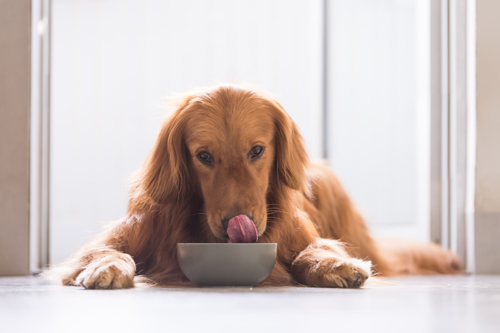
Save 35% with AutoShipUse code SAVE35 (Up to $20 max. Exclusions apply)

SAVE AN EXTRA $5 - $20 OFFUse code PETS in cart (Exclusions apply)

While efforts are made to answer all questions as quickly as possible, if an immediate answer is required or if your pet is in need of urgent or emergency care, contact your pet's veterinarian immediately.

You will receive an answer from Dr. Lindsay and our vet/tech team as soon as possible, usually the same day.
All answers are provided for informational or educational purposes only, and are intended to be a supplement to, and not a substitute for, the expertise and professional judgment of your pet's veterinarian.
It may be necessary to consult your pet's veterinarian regarding the applicability of any opinions or recommendations with respect to your pet's symptoms or medical condition.
Close
An error has occurred, please reload the page and try again.
CloseWhile efforts are made to answer all questions as quickly as possible, if an immediate answer is required or if your pet is in need of urgent or emergency care, contact your pet's veterinarian immediately.
There is no answer related to your question

Do you feed your dog a grain-free diet? While these foods may have once seemed like a healthier option, they may now be linked to a serious heart condition called dilated cardiomyopathy.
The FDA recently began an investigation to find out why more dogs are developing this condition, and how foods can be formulated to prevent it. In the meantime, here is what you should know to help keep your dog safe:
What Is Dilated Cardiomyopathy?
Dilated cardiomyopathy, or DCM, is a condition that causes a dog's heart to have to work harder to circulate blood throughout the body. The walls of the dog's heart stretch and become thinner, while the blood pressure inside the heart increases, causing the heart to enlarge.
DCM can be hereditary. It's more common in large and giant breeds like the Doberman, Boxer, Saint Bernard, and is also seen in the Cocker Spaniel, though this disease can affect any purebred or mixed breed dog.
Recently, though, veterinarians have been noticing more cases of DCM in dog breeds not known to be genetically predisposed to it. Golden Retrievers, in particular, have been developing DCM more frequently.
A majority of affected dogs were eating grain-free diets. These diets are typically heavy in peas, chickpeas, lentils white potatoes and sweet potatoes. If any of these foods are a main ingredient your dog's diet, your dog may be at risk.
What Are The Symptoms Of DCM?
In the early stages of DCM, there are usually no symptoms. Your dog may have DCM for years before showing any signs. If your dog has been eating an exclusively grain-free diet and/or is of one of the commonly affected breeds, see your vet for advice before making any dietary changes.
The late stage symptoms of DCM are the same as heart failure with other underlying causes. Seek immediate vet care if your dog shows any of these symptoms:
Should You Stop Feeding Grain-Free Dog Food?
The FDA is still investigating how grain-free diets are causing DCM. It was previously thought that these ingredients made it harder for dogs to synthesize taurine, an amino acid essential to heart health. However, many affected dogs have normal levels of taurine.
At this time, you do not necessarily need to worry, or give up your dog's favorite food. However, feeding a rotational diet that includes grain-inclusive foods can help reduce your dog's risk of diet-related DCM. Grain-inclusive diets are made up of ingredients like corn, rice, quinoa, oats, barley and wheat. If your dog has no known allergy to grains, these foods should be perfectly fine to feed.
If your dog has been eating an exclusively grain-free diet for a long period of time, is made up of one of the genetically predisposed breeds, is a large or giant breed dog, or you otherwise have concerns, seek your vet's advice about testing for DCM or making changes to your dog's diet.
 Swipe
Swipe